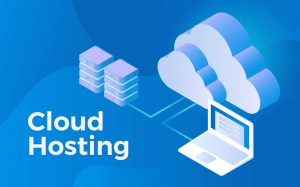All You Need to Know About Web Hosting

For many people, finding hosting for their websites seems to be a long and complicated process on par with having their teeth pulled. While it’s true that a lot of jargon is bandied about, choosing the right web host isn’t as difficult as it might seem.
You just need to remember a few critical factors when researching web hosts. Of course, the type of web hosting is also important, as the one you choose depends mainly on your specific needs and circumstances.
Types of Web Hosting
There are four main types of hosting available, namely shared web hosting, private virtual hosting, dedicated hosting, and colocation hosting.
Shared Web Hosting
This type of hosting means that your site will be sharing space with as many as 100 other sites on the same server. Sometimes, it can be more, depending on the web host. It’s mainly intended for small websites, but is relatively inexpensive, which is why it’s an attractive option for many people.
It’s also easy to use and tends to come with a whole host of tools that makes life easier, especially for people new to web hosting.
The problem with this type of hosting, though, is that if somebody’s website suddenly gets a lot of traffic and they exceed their share of the system’s resources of the system, it could affect your site’s loading speed. And the slower your site is, the more traffic you will lose.
Private Virtual Hosting
This is a combination between shared hosting and dedicated hosting. In other words, you share a server with other sites, but you have a dedicated section of that server all to yourself thanks to virtualization.
This option is suitable for small and growing sites.
It’s advantageous because the hosting provider is the one to manage the hardware, yet you receive full root access as if it were a dedicated server. It’s also easy to scale the hosting package up or down, depending on your website’s needs.
One of the issues is that you could be responsible for some maintenance of the server software. Also, the more resources you need, the more expensive it becomes.
Furthermore, if you want to upgrade the CPU or the RAM, you can’t really do it separately as they are often tied together.
Dedicated Hosting
In this case, your website will be running on its own server that you don’t share with anyone else. The web hosting company manages and owns the hardware, but essentially leases the operating system as well as the software to you.
This type of hosting is best suited for medium to large websites. The main advantage is that you aren’t sharing resources with anyone else. However, you can also configure the server extensively, and performance is usually much better than other options.
The problem is that it can get pretty expensive and you might even find that buying the hardware outright will make more sense over the long term. This is especially true if you need a lot of space or RAM.
Another drawback is that it does require a lot of technical knowledge.
Colocation Hosting
This is when you buy your own servers and hose them in a colocation facility. In other words, a hosting company gives you access to their internet connection and ensures you have access to a climate-controlled environment with uninterruptible power. They’ll also provide physical security and some basic support.
It’s suitable for medium and larger websites.
The main benefit is that if you use it over the long term, it’s much cheaper than dedicated hosting. Furthermore, you have complete control when it comes to choosing the hardware.
The drawbacks are the large investment cost and the high degree of tech knowledge required to get things working and to keep them running.
Importance of Web Hosting
Web hosting is the foundation on which any successful website is built. It is the service that allows websites to be accessible on the internet, making it possible for users to access your content, products, or services from anywhere in the world. Without web hosting, your website would essentially be a file on your computer, inaccessible to anyone outside your local network.
But web hosting is not just about accessibility. A good web host can significantly impact the performance of your website. Fast loading times, ample bandwidth, and reliable uptime are all essential features that can improve user experience, increase engagement, and ultimately, drive conversions.
Email hosting is yet another essential feature provided by many web hosting providers. It allows you to create professional email addresses with your domain name, such as info@yourdomain.com. This is particularly important for businesses that want to establish a professional online presence and maintain brand consistency across all communication channels.
Finally, technical support is a key advantage of web hosting. A good web host will offer 24/7 technical support to help you with any issues that arise with your website or server. This is particularly important for businesses that rely on their website as a primary source of revenue or customer interaction.
Other Factors to Consider When Choosing a Web Host
There are a number of factors you need to analyze when choosing a hosting provider, such as uptime, performance, customer support, and price, which are all essential when deciding on a web host.
Performance and Uptime
Performance and uptime are, essentially, the most important factors. The speed with which your website loads, as well as the uptime of your website, have a direct correlation to your traffic.
In other words, if it takes a website forever to load, people are not going to hang around. Likewise, if your website is down more than it is up, then you’re going to lose valuable traffic.
Thus, you want to choose a web host that has a proven great uptime – at least 99.9% – as well as a good server response time.
Don’t make the mistake of relying solely on what the web hosting company says, though. Instead, hunt around and check out some of the reviews online that have been conducted by people who actually test the service.
There are quite a few available and you’ll find that the advertising spiel is not always on par with the reality.
Customer Support
While you probably won’t need customer support that often, you still need to be able to get in touch with them quickly and make sure they offer effective support.
So, make sure that the web host you choose has support available around the clock, and that their team is able to help you with your problems. Web hosts that provide multiple contact channels are an even better option.
You should actually test their support yourself because, once again, many companies claim to provide excellent support, but the reality is not quite on par with their claims.
Email Accounts
One important feature of web hosting is email accounts. Many web hosting providers offer email hosting services, which allow you to create professional email addresses with your domain name, such as yourname@yourdomain.com. This is a great way to establish a professional online presence and maintain brand consistency across all communication channels.
With email hosting, you can create multiple email accounts for different departments, employees, or services within your organization. This allows you to manage your emails more effectively and ensures that emails are delivered to the correct recipient.
Email hosting also offers several advantages over using free email services such as Gmail or Yahoo. First and foremost, it looks more professional and trustworthy to have an email address with your domain name. This can help to build trust with your customers and improve your credibility as a business.
Bandwidth
Bandwidth is another important feature of web hosting. It refers to the amount of data that can be transferred between your website and its visitors. Bandwidth is essential for ensuring that your website can handle the amount of traffic it receives and provide a smooth user experience.
When a visitor requests a webpage from your website, the server sends data to the visitor’s browser, which includes HTML, images, videos, and other content. This data transfer consumes bandwidth, and the more visitors you have, the more bandwidth you will need.
To ensure that your website can handle the amount of traffic it receives, it’s important to choose a web hosting provider that offers sufficient bandwidth. The amount of bandwidth you need will depend on the size of your website, the number of visitors you receive, and the amount of data your website transfers.
Most web hosting providers offer different bandwidth packages, ranging from a few gigabytes to unlimited bandwidth. It’s important to choose a package that meets your needs but also fits within your budget.
Control Panel
A control panel is a web-based interface that allows you to manage your website and hosting account. It’s an essential feature of web hosting that enables you to perform various tasks, such as setting up email accounts, creating databases, managing files, installing software, and viewing website statistics.
A good control panel should be user-friendly, intuitive, and offer a range of features that make it easy to manage your website and hosting account. One of the most popular control panels for web hosting is cPanel, which is used by many web hosting providers.
cPanel offers a range of features, including a file manager, database management tools, email account management, site backups, and site statistics. It also includes a one-click installer that allows you to easily install popular software, such as WordPress, Joomla, or Drupal, without having to manually upload and configure files.
Other control panels include Plesk, DirectAdmin, and Virtualmin. These control panels offer similar features to cPanel, but with different user interfaces and pricing models.
Disk Space
Disk space is another important feature of web hosting that refers to the amount of storage space available for your website and its files. Every file on your website, including images, videos, HTML files, and databases, takes up disk space on the web server.
The amount of disk space you need will depend on the size of your website and the number of files you have. If you have a small website with just a few pages and minimal multimedia content, you may only need a few gigabytes of disk space. However, if you have a large website with lots of multimedia content, such as images, videos, or audio files, you will need more disk space.
When choosing a web hosting provider, it’s important to consider the amount of disk space offered, as well as any restrictions on file size or types. Some providers offer unlimited disk space, while others may have a limit on the amount of disk space you can use.
It’s also important to consider the type of storage offered by the web hosting provider. Traditional hard disk drives (HDDs) are slower and less reliable than solid-state drives (SSDs), which are faster and more reliable. SSDs are a better choice for hosting websites with high traffic or large multimedia files because they offer faster loading times and better performance.
Security
Security is a critical feature to consider when choosing a web hosting . The security of your website and your customers’ data should be a top priority for any web hosting provider. Here are some important security features to look for:
- SSL encryption: SSL encryption ensures that all data transmitted between your website and your visitors’ web browsers is encrypted and secure. Look for a web hosting provider that offers free SSL certificates and makes it easy to install and configure SSL on your website.
- Firewall protection: A firewall protects your website from unauthorized access and blocks malicious traffic. Look for a web hosting that offers firewall protection to keep your website safe from attacks.
- Malware scanning: Malware scanning detects and removes any malicious code on your website. Look for a web hosting service that offers regular malware scanning and removal services to keep your website safe.
- Backups: Regular backups are essential for protecting your website from data loss due to hacking, hardware failure, or human error. Look for a web hosting company that offers automatic backups and easy restore options.
- Two-factor authentication: Two-factor authentication adds an extra layer of security to your website login process. Look for a web hosting provider that offers two-factor authentication to protect your website from unauthorized access.
- DDoS protection: DDoS attacks are a common type of cyber attack that can cause your website to become unavailable. Look for a web hosting provider that offers DDoS protection to ensure that your website stays up and running even during an attack.
- PCI compliance: If you plan to accept credit card payments on your website, you will need to comply with PCI (Payment Card Industry) standards. Look for a web hosting provider that offers PCI-compliant hosting to ensure that your website is secure and meets industry standards.
By choosing a web hosting that offers these security features, you can rest assured that your website and your customers’ data are safe and secure.
Scalability
You also want to work with a web host that can help you upgrade easily. If your website and traffic grow quickly, the last thing you want is for your website to suffer because it takes forever to get more resources.
Thus, you want to work with a host that can switch you easily from a shared server to a dedicated one, for example.
Uptime guarantee
Uptime guarantee is an important feature to consider when choosing a web hosting provider. It refers to the amount of time that a web hosting provider guarantees your website will be up and running and accessible to visitors.
An uptime guarantee is typically expressed as a percentage, such as 99.9% or 99.99%. This means that the web hosting provider guarantees that your website will be available and accessible for at least 99.9% or 99.99% of the time.
The higher the uptime guarantee, the better. A 99.9% uptime guarantee means that your website could be down for up to 43 minutes and 50 seconds each month, while a 99.99% uptime guarantee means that your website could only be down for up to 4 minutes and 23 seconds each month.
When choosing a web hosting provider, it’s important to look for one that offers a high uptime guarantee. However, it’s also important to consider other factors that can affect uptime, such as server location, server maintenance, and server capacity. A good web hosting provider should have multiple data centers in different locations, and should perform regular maintenance to ensure that servers are running smoothly.
E-commerce features
E-commerce features are an important consideration when choosing a web hosting provider if you plan to sell products or services through your website. These features allow you to create an online store, accept payments, and manage orders and inventory.
Some of the key e-commerce features to look for in a web hosting provider include:
- Shopping cart: A shopping cart is essential for any online store. It allows customers to add items to their cart and checkout when they are ready to make a purchase. Look for a web hosting provider that offers a shopping cart that is easy to use and integrates with your website.
- Payment gateway integration: To accept payments online, you will need a payment gateway. Look for a web hosting provider that supports popular payment gateways such as PayPal, Stripe, or Square.
- SSL encryption: SSL encryption is essential for secure online transactions. Look for a web hosting provider that offers SSL encryption, which encrypts data transmitted between your website and your customers’ web browsers.
- Inventory management: If you sell physical products, you will need a way to manage your inventory. Look for a web hosting provider that offers inventory management features that allow you to track stock levels, receive notifications when stock is running low, and manage your products.
- Order management: Once you start receiving orders, you will need a way to manage them. Look for a web hosting provider that offers order management features that allow you to view and process orders, send shipping notifications, and manage returns.
- Security: E-commerce sites are a prime target for hackers, so security is essential. Look for a web hosting provider that offers security features such as firewalls, malware scanning, and regular backups.
By choosing a web hosting provider that offers these e-commerce features, you can create a secure, reliable, and user-friendly online store that allows you to sell your products or services to customers around the world.
Price
Price should definitely be a consideration but remember that you do get what you pay for. So, don’t just look at the direct price, but also consider all the features and services included in that price, as well as the quality of service.
After all, poor service can lead to lost revenues, which will hurt more than a paying $10 or $15 extra a month.
Also, make sure to check the renewal policy as many companies will charge a higher renewal rate.
Recommended Reading :
- 3 Indicators Why You Should Switch to Cloud Hosting
- Best Cloud Hosting Platform for Startup to Big Organization
- 5 Great WordPress Hosting Options For 2021
- Why to Shift The Business Trend from Traditional Hosting to Cloud Hosting?
- 5 Reasons Why You Shouldn’t Rely on Free Domain Hosting
Customer Reviews
While we’ve already stated you should check out customer reviews, it’s important that we reiterate this.
Don’t just rely on the company’s advertising. Instead, do your own research and learn as much as you can about the company in question. Check out their credentials but also customer feedback.
Also, make sure to look at reviews where the author can prove that they’ve tested the service. This will increase the likelihood of the reviews being objective, while also providing real results, rather than just marketing gimmicks.
While the above was only a quick look at web hosting, it’s more than enough for you to be able to choose a reliable web host. Remember, like with anything else, take the time to do your research, and you’ll be just fine.






